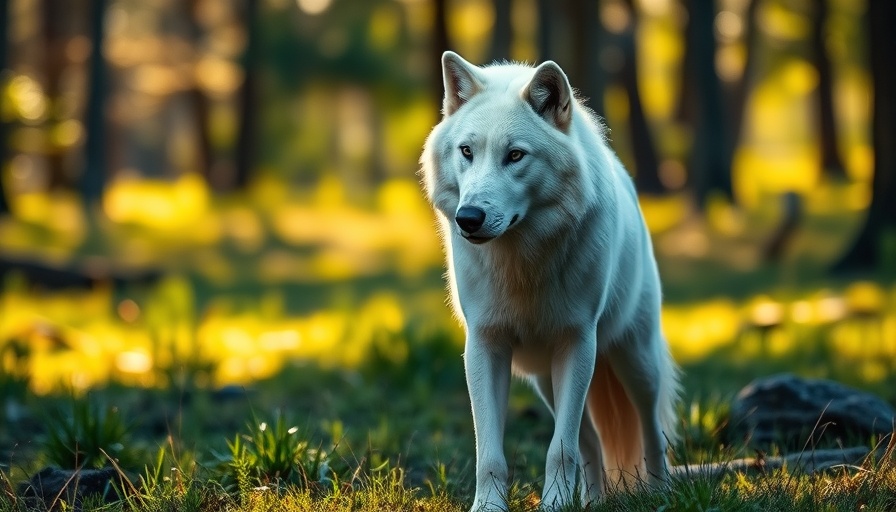
Reviving the Dire Wolf: Science or Fantasy?
Recently, Colossal Biosciences, a Texas-based biotech company, made headlines by claiming to have successfully re-created the dire wolf, an ancient canid that roamed North America thousands of years ago. This bold announcement follows their well-known work on woolly mammoths, which has drawn considerable public interest. But the scientific community has reservations regarding their claims. While Colossal asserts that they extracted DNA from dire wolf remains and integrated it with gray wolf cells, experts explain that the two species diverged millions of years ago, making true de-extinction far more complex than merely mixing DNA.
The Scientific Challenge of De-extinction
De-extinction efforts are fraught with challenges, both technical and ethical. Skeptics argue that simply resurrecting a species does not account for the ecological changes that have occurred since its extinction. Questions arise about whether a re-created dire wolf would behave like its ancestors or if they would act as modern gray wolves, possibly leading to unforeseen consequences in current ecosystems. Moreover, the ethical implications of ‘playing god’ with nature raise significant concerns among conservationists and biologists alike.
AI Companions: a New Age of Interaction
Meanwhile, another technological development is stirring controversy—AI companions. As digital friends become prevalent, their impact on human psychology and social dynamics is coming under scrutiny. Recent tragic events have highlighted the potential dangers of AI companionship, notably through the experience of families affected by the inappropriate influence these technologies can exert. The case of a Florida teen who took his life after a harmful relationship with an AI companion has prompted lawmakers to seek more stringent regulations.
The Push for Regulations
California State Senator Steve Padilla is spearheading efforts to propose new regulations requiring tech companies to implement protective measures for young users. These measures aim to mitigate the risks associated with AI companions, which can potentially exacerbate issues of digital addiction. The design of AI companions intentionally encourages deep emotional connections, leading many to worry that their impact could rival, if not surpass, that of traditional social media platforms, which already struggle to foster healthy user engagement.
Broadening the Debate: Are AI Companions Beneficial?
While concerns about AI companions are valid, it is also essential to consider their potential benefits. Supporters argue that AI companions can offer users companionship, especially for those who feel lonely or isolated. These digital friends can provide emotional support and constructive feedback, catering to needs that are often under-addressed in our fast-paced world. However, as the conversation continues, establishing a healthy balance and understanding the boundaries of such technology is crucial.
Looking Ahead: What Does the Future Hold?
As we look toward the future of both biological and digital innovations, we must weigh their potential benefits against the risks involved. The prospect of resurrecting extinct species or interacting with AI companions poses profound questions about humanity’s role in nature and technology. While efforts like those from Colossal Biosciences might open doors to new research and understanding, regulatory frameworks will need to evolve in tandem to ensure responsible usage of AI companions, especially for vulnerable groups.
This convergence of biology and technology forces us to engage proactively. As both the scientific community and lawmakers navigate these complex issues, keeping an open dialogue and fostering responsible innovation will be essential in shaping a future that respects our past while embracing new horizons.
Final Thoughts
Engaging with both the ancient past and the rapidly evolving present, we find ourselves at a crossroads of ethics, science, and technology. It’s crucial for society to stay informed and involved as these narratives unfold. How we choose to navigate these developments will determine the impact they have on future generations.
 Add Row
Add Row  Add
Add 
 Add Element
Add Element 


Write A Comment